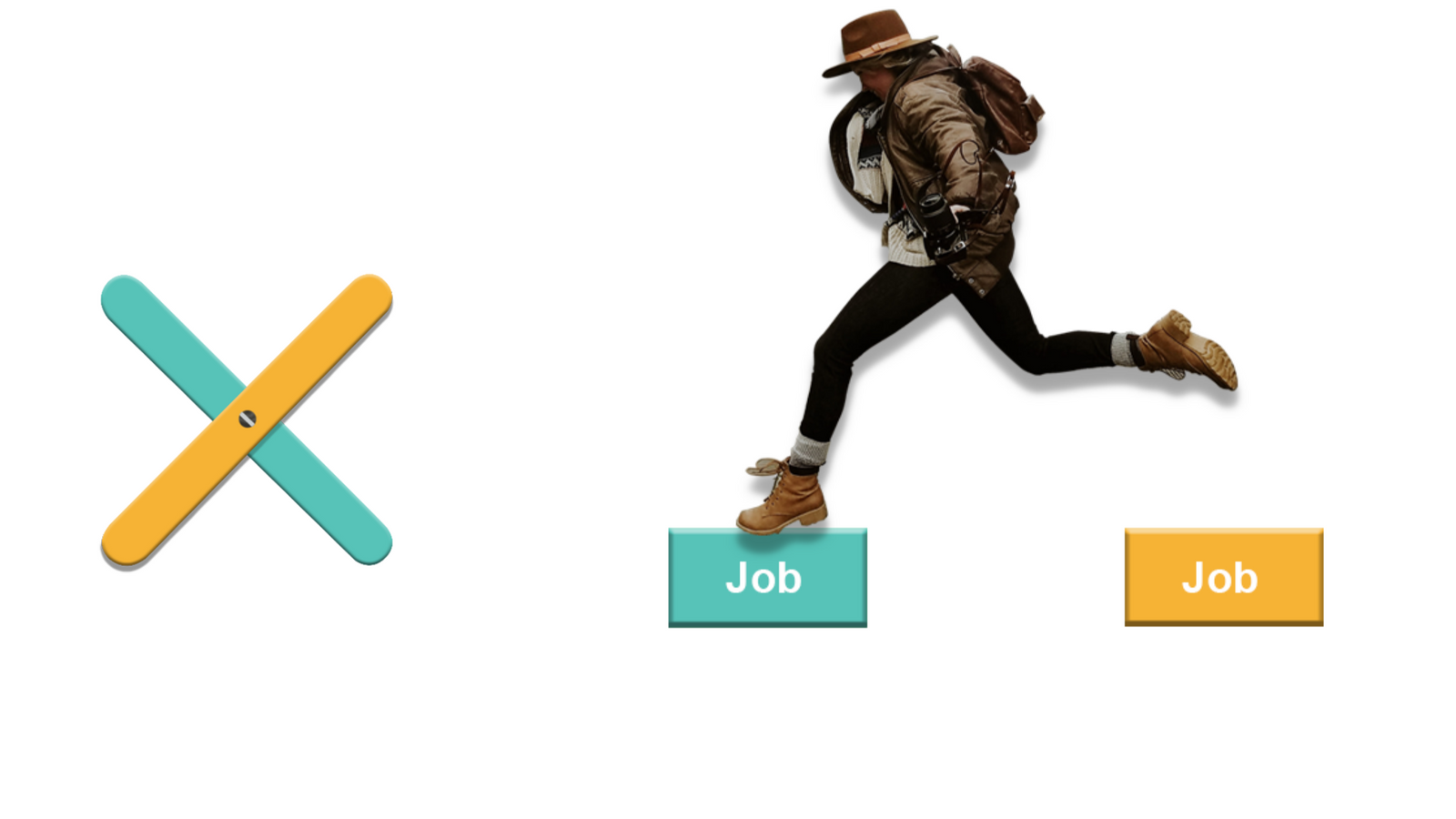

Job-hopping is switching jobs regularly over a relatively short period. In the past,constantly changing jobs may have been regarded as a negative reflection of people’s work ethic. Based on the number of positions listed on a resume, recruiters may have assumed the interviewee didn’t work well with others, didn’t like authority, or didn’t care about being part of the workforce. According to an article by Workopolis, job-hopping is the new normal. Whether the reason is job dissatisfaction, boredom, ambition or something else entirely, the report says a staggering 51% of people remain in a role for under two years. But what about the people who want to learn new skills? Could those people be using job-hopping as a technique and as the means to develop skills to advance their careers?
An article in Undercover Recruiter, talks about the power of new experiences and responsibilities that come with every new role and how they could benefit your future career. One benefit of job-hopping is the opportunity to gain new skills through upskilling. Upskilling doesn’t necessarily require an employee to remain at an organization for an extended time. With the advancement of technology and the evolution of online learning, anyone can learn new, highly in-demand skills and develop at their own pace. Being computer literate and familiar with new software could make you highly sought after, especially if the software requires a great deal of training. On the one hand, having plenty of in-demand skills could make you an attractive prospect to a recruiter. However, on the other hand, frequently switching jobs won’t effectively demonstrate your level of commitment or provide you with enough time to truly hone your new skills.

In addition to new settings, every position presents new challenges and responsibilities. Being open to interacting with new colleagues can provide you the information you need to shape your decisions about your future career. Peers are valuable resources you can use to your advantage. Whenever possible, ask them about their roles if they interest you. The advice and knowledge they can provide could help you get a better idea of what it takes to succeed in the role. More importantly, knowing what their workday looks like may help you decide if it’s something you may want to consider. Job-hopping provides experience in various working environments and personalities. These experiences will help you learn more about yourself and the settings you dislike, narrowing your focus on which career path to explore next.
Job-hopping is more than a trend. For some, it could be a means to acquire the skills and experience they need to find their place and succeed in life. Is job-hopping an excellent way to gain experience? It very well could be, but there are drawbacks to taking this approach, as mentioned earlier. Both recruiters and job seekers need to focus and consider who is on the other side of the table because job-hopping might be here to stay.

As you look at your phone, you realize that while you're still not sure which one is right for you in the moment, one thing's for sure: you like the idea of being valued for the knowledge you bring. After all, as Francis Bacon once said, "Knowledge is power."

From Old Spice's "I'm a man on a horse" to Connor starring in the Georgetown Hospital Foundation video known as "Lottery girl," Connor discusses how unhinged ideas could become a major success for your brand.

Marketing case competitions will exceed your expectations and open doors you never knew you wanted to walk through. You can become a better marketer by taking a chance now. What are you waiting for?